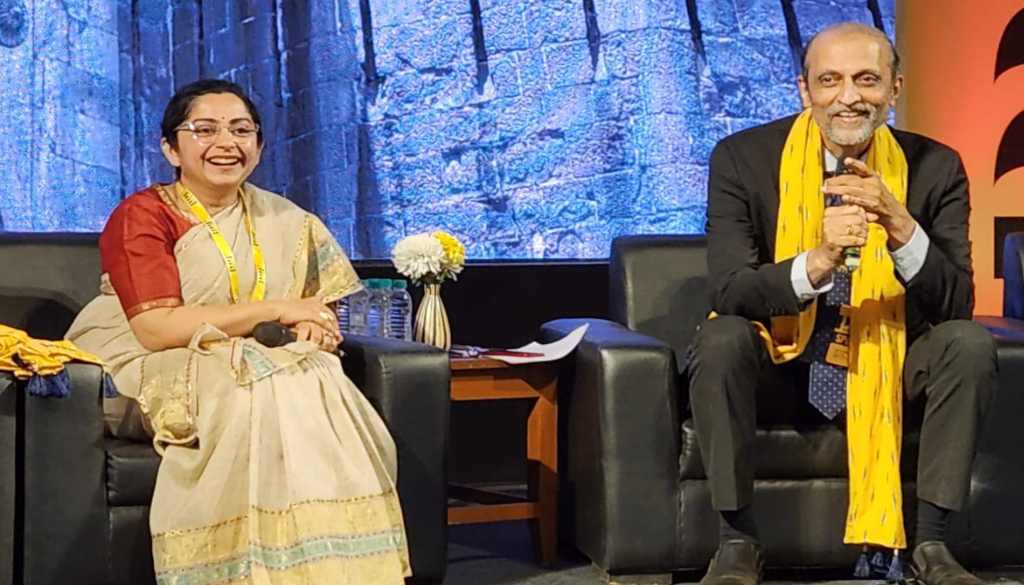“Evidence-Based Policymaking Is The Need Of The Hour,” says Shamika Ravi, Member of the Prime Minister’s Economic Advisory Council

Pune, 19th January 2024: In designing policies, policymakers must consider relevant evidence, opined Shamika Ravi, Member of the Prime Minister’s Economic Advisory Council, during the inaugural session of the first edition of the PPPF (Pune Public Policy Festival) at the Gokhale Institute of Politics and Economics. Sahil Deo has taken the lead in organizing this festival with support from the Parimal and Pramod Chaudhari Foundation.
She delivered a keynote address on ‘Catalyzing Impactful Governance Through Evidence-Based Policymaking’ and touched upon aspects affecting the economy, such as the pension scheme, extended maternity leave, skilling, and employment. Following her keynote address, Dr. Ajit Ranade, VC, Gokhale Institute of Politics and Economics, interacted with her on certain topics. Indranil Chitale presented the opening remarks and briefed the gathering about the thought behind organizing PPPF.
“While considering the cost of any welfare scheme, apart from the actual accounting cost, its economic cost should also be considered. MNREGA is a good scheme, and its usefulness came to light again during the pandemic. However, welfare schemes, meant for the benefit of poor people at large, must be evaluated in terms of affordability. A significant portion of the government’s budget goes into interest costs and salary and pension payments. Reverting to the old pension scheme, as demanded by some sections and backed by some political parties, is not feasible,” said Shamika Ravi.
“The extension of paid maternity leave has some positive aspects. However, it has lowered the percentage of women in the workforce. As a result of this policy, SMEs prefer to employ more male employees. Despite every state having a policy, progress varies, and governance plays a key role. Questions about how new jobs will emerge in the future need to be answered,” she added.
Shamika Ravi emphasized that understanding the potential of the private sector to create new jobs is crucial when facing government job psychology. Current findings indicate higher unemployment among highly educated youth due to a gap between industry-required skills and the perception of the right job among the educated youth. In India, unemployment is as high as 34.8% among youth with graduate and above degrees. She advised economics students to study open-source data and incorporate it into their research.
Following the inaugural session, a panel discussion on “Reimagining Urban Transformation – The Trade-off between Environment and Development” took place. PCMC Municipal Commissioner Shekhar Singh, PWC India’s partner Shardul Phadnavis, Greater Mumbai’s Additional Municipal Commissioner Ashwini Bhide, Bandu Dhotre, and Ambika Vishwanath participated in this panel discussion.






